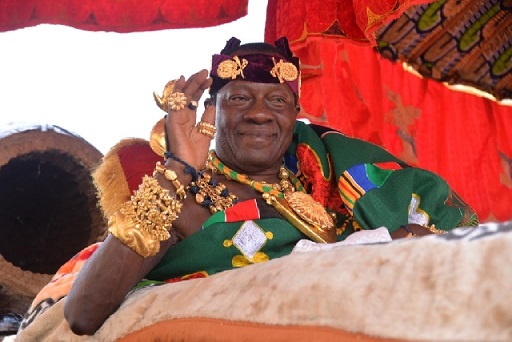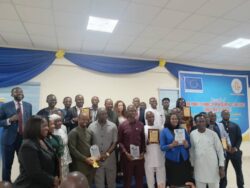The world has lost an intellectual gem, distinguished international civil servant and dynamic traditional leader with the demise of Daseebre Prof. (Emeritus) Oti Boateng. The globally renowned statistician and traditional leader of the New Juaben Traditional Area, capital of the Eastern Region of Ghana, passed away in August, aged 83.
Daasebre Prof. (Emeritus) Oti Boateng was a man of great intellect, immense professional competence and transformative leadership acumen, who left indelible footprints of excellence in his remarkable journey through life as a scholar, public servant and traditional ruler.
Ever the astute scholar, Daasebre Prof. (Emeritus) Oti Boateng churned out over 100 technical publications in acclaimed journals, and also authored a number of books. This prolific intellectual output served the world a steady diet of his brilliant expositions of novel and insightful perspectives on diverse topics in the fields of statistics and development. Remarkably, it belied the heavy demands and constraints of his decades-long high-profile and itinerant positions in the Ghanaian and United Nations civil service systems, and his commitments as a local traditional ruler.
As Ghana waded through the challenging final decades of the last century, grappling with the multi-pronged challenges of its structural economic adjustments and democratic transition, Daseebre Prof. (Emeritus) Oti Boateng provided adroit stewardship of the Ghana Statistical Service, which is an anchor in the institutional architecture for evidence-driven policy-making and implementation in Ghana. His efforts yielded an impressive template of transformative public sector leadership in the developing world, confirmed by his subsequent litany of local and international honours and appointments to top international civil service roles.
For nearly three decades, Daasebre Prof. (Emeritus) Oti Boateng led the New Juaben Traditional Area, popularly known as Koforidua, the capital of the Eastern Region of Ghana, as the paramount chief. The journey from academia and the civil service to local traditional leadership, a transition from highly-formalized operational and management structures to ancient governance systems notorious for their rabid conservatism (and hostility to rapid modernisation), was certainly a fascinating adventure.
Personally, observing from diverse angles over the past decades, starting as the kindergarten kid who earned a fondly cherished direct personal compliment from Daasebre for an activity at one of the regular traditional events, to the current mature grown-up, I reckon his leadership has positively impacted the New Juaben Traditional Area.
The reign of Daasebre Prof. (Emeritus) Oti Boateng would be remembered foremost for the institution of the Akwantukese (the Great Migration) festival that celebrates the historical sojourn of the people of New Juaben from our ancestral home of Juaben (in the Ashanti Region) to our present location, more than a century ago. The festival preserves both the rich history and kinship of the peoples of Old and New Juaben.
The refurbishment and expansion of the paramount chief’s palace into one of the most elegant nationwide, is another legacy of the deceased leader. He further earns plaudits for the establishment of the New Juaben Development Board, and his steadfast efforts to assemble the best talents of the land to pursue development for the area. Daasebre’s immense global stature also often put New Juaben on the international map, yielding perceptible unquantifiable benefits. His love and support for education in the area also shone through his dedidcated Chancellorship of the All Nations University, the first tertiary educational institution of its kind in Koforidua.
Daasebre Prof. (Emeritus) Oti Boateng’s dynamism as a traditional ruler, and capacity for an exciting blend of scholarship and principled leadership with traditional customary conventions and practices, accentuate his irreplaceability and the intense pain of his loss.
Osekyerehene, Yiadom ne Hwedie dehyie, damirifa due!
The author is a native of Koforidua.










